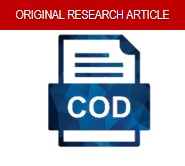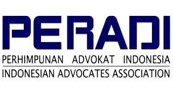Private Sector and the 1% Disability Quota
Legal Responsibilities in Indonesia
DOI:
https://doi.org/10.46924/jihk.v7i2.362Keywords:
1% Quota, Persons with Disabilities, Private Companies, Labor LawAbstract
The background of this research is the challenge of fulfilling the 1% disability employment quota by private companies in Indonesia, in accordance with Law No. 8 of 2016 on Persons with Disabilities. Despite the regulations outlining this obligation, companies often face obstacles such as low legal awareness, social stigma, and a lack of disability-friendly infrastructure. This study employs a juridical-normative research method with statutory, conceptual, and analytical approaches to relevant regulations and their implementation practices. The findings show that although the government has made efforts to encourage companies to meet the disability quota through incentives and sanctions, consistent implementation remains limited. Strengthening oversight and increasing legal awareness are necessary to address these challenges. Additionally, applicable solutions include improving accessibility facilities and providing training programs for companies to better address the challenges of disability inclusion.
Downloads
References
Journals
Abrianto, Bagus Oktafian, dan Hezron Sabar Rotua Tinambunan. “Challenging the ‘Half-Hearted’ Fulfillment of the Rights of Workers with Disabilities.” Disable: Law Review 1, no. 1 (2025): 103–16. https://doi.org/10.26740/dlr.v1i1.45076.
Agustanti, Rosalika Dika, Bambang Waluyo, dan Dwi Aryanti Ramadhani. “Upaya Peningkatan Pengetahuan dan Pemahaman Hak-Hak Penyandang Disabilitas di Bidang Ketenagakerjaan Atas Dasar Persamaan Hak.” Jurnal Masyarakat Mandiri Universitas Muhammadiyah Mataram 6, no. 5 (2022): 3776–89. https://doi.org/10.31764/jmm.v6i5.10237.
Aprilia, Imas Diana, dan Prima Dea Pangestu. “Work Systems of Persons with Disabilities in The Company.” Jurnal Penelitian Pendidikan Indonesia 7, no. 2 (2021): 349–56. https://doi.org/10.29210/020211259.
Ayuningtyas, Dumilah, Niken Sasanti Ardi, Sandra Barinda, Ayudina Larasanti, Theresa Napitupulu, Cindy Margaretha, dan Sahfira Ulfa Hasibuan. “Inclusivity of Persons With Disabilities in the Work Sector During the Covid-19 Pandemic in Indonesia.” Frontiers in Public Health 10 (2022): 1–11. https://doi.org/10.3389/fpubh.2022.835552.
Caron, Laura. “Disability, Employment and Wages: Evidence from Indonesia.” International Journal of Manpower 42, no. 5 (2021): 866–88. https://doi.org/10.1108/IJM-01-2020-0022.
Hyseni, Fitore, Douglas Kruse, Lisa Schur, dan Peter Blanck. “Disability, Workplace Inclusion and Organizational Citizenship Behavior: An Exploratory Study of The Legal Profession.” Journal of Participation and Employee Ownership 6, no. 1 (2023): 31–50. https://doi.org/10.1108/JPEO-10-2022-0017.
Jurado-Caraballo, M. Ángeles, dan Cristina Quintana-García. “Disability inclusion in workplaces, firm performance, and reputation.” European Management Journal 43, no. 5 (2025): 752–63. https://doi.org/10.1016/j.emj.2024.08.001.
Kurnianto, Arie Arizandi, Haitham Khatatbeh, Viktória Prémusz, Zsolt Nemeskéri, dan István Ágoston. “Managing disabled workers due to occupational accidents in Indonesia: a case study on return to work program.” BMC Public Health 23, no. 943 (2023): 1–10. https://doi.org/10.1186/s12889-023-15930-2.
Manuaba, Ida Bagus Surya, Agstina Shinta Hartati, dan Eve Emaliana. “Benefits for Companies by Hiring Workers with Disabilities.” Indonesian Journal of Disability Studies 9, no. 1 (2022): 115–22. https://doi.org/10.21776/ub.ijds.2022.009.01.09.
Purba, Iman Pasu, Tauran, Alifia Widianti, dan Irma Lianna. “Fulfillment employment rights for individuals with disabilities in Surabaya.” Jurnal Civics Media Kajian Kewarganegaraan 20, no. 2 (2023): 280–91. https://doi.org/10.21831/jc.v20i2.55144.
Rusdiana, Emmilia, Arinto Nugroho, dan Nurnilam Sari. “The Corporate Management Strategies as Empowering Persons with Disabilities Through Equal Opportunity and Access to Employment in Indonesia.” Indonesian Journal of Disability Studies 9, no. 1 (2022): 75–88. https://doi.org/10.21776/ub.ijds.2022.009.01.06.
S, Laurensius Arliman, Elfrida Ratnawati, dan Aida Abdul Razak. “Legal Guarantees for Persons with Disabilities to Secure Decent Work: A Human Rights Perspective from Indonesia.” Jurnal Wawasan Yuridika 8, no. 2 (2024): 94–111. https://doi.org/10.0.97.240/jwy.v8i2.4463.
Simanjuntak, Jeremia Gom Gom Parulian. “Policy on Fulfilling the Rights of Persons with Disabilities in Indonesia: Quo Vadis?” Indonesian Journal of Disability Studies 8, no. 1 (2021): 211–77. https://doi.org/10.21776/ub.ijds.2021.008.01.16.
W, Imma Indra Dewi. “Anti-Discrimination In Emplyment Regulation For Persons With Disabilites In Indonesia.” Yustisia Jurnal Hukum 8, no. 1 (2019): 133–48. https://doi.org/10.20961/yustisia.v8i1.28016.
———. “Employment Arrangement for Person with Disabilities in Indonesia in Post-New Order Era.” Indonesian Comparative Law Review 1, no. 2 (2019): 69–81. https://doi.org/10.18196/iclr.1207.
Xue, Qian, dan Bo Chen. “Quarantined Justice, Compromised Diversity: Barriers to Disability Inclusion in China’s Public Sector Employment.” Solidarity in Diversity: Overcoming Marginalisation in Society 13 (2025): 1–15. https://doi.org/10.17645/si.9083.
Proceeding
Arini, Fitri Dwi, dan Nurul Hayati. “A Systematic Review: Community Support in Employment Skill Development of Intellectual Disabilities People.” In Proceeding of Non-Formal Education International Seminar 2021, 1–7. Yogyakarta: Digital Press Social Sciences and Humanities, 2021. https://doi.org/10.29037/digitalpress.47395.
Downloads
Published
Issue
Section
License
Copyright (c) 2025 Dila Wahyu Agustin, Ariawan Gunadi

This work is licensed under a Creative Commons Attribution 4.0 International License.
Authors who publish with this journal agree to the following terms:
- Copyright on any article is retained by the author(s).
- The author grants the journal, the right of first publication with the work simultaneously licensed under a Creative Commons Attribution License that allows others to share the work with an acknowledgment of the work’s authorship and initial publication in this journal.
- Authors are able to enter into separate, additional contractual arrangements for the non-exclusive distribution of the journal’s published version of the work (e.g., post it to an institutional repository or publish it in a book), with an acknowledgment of its initial publication in this journal.
- Authors are permitted and encouraged to post their work online (e.g., in institutional repositories or on their website) prior to and during the submission process, as it can lead to productive exchanges, as well as earlier and greater citation of published work.
- The article and any associated published material is distributed under the Creative Commons Attribution 4.0 International License



 Sinta ID:
Sinta ID: 


















